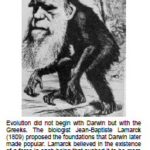ec03 The Six Days of Creation examines the creation days, 24 hour periods, and other related points.
The Six Days of Creation
By David Cox
[ec03] v1.2 ©2008 www.coxtracts.com
You may freely reproduce this tract for non-profit purposes
Genesis 1:1 In the beginning God created the heaven and the earth. John 1:3 All things were made by him; and without him was not anything made that was made. Colossians 1:16 For by him were all things created, that are in heaven, and that are in earth, visible and invisible, whether they be thrones, or dominions, or principalities, or powers: all things were created by him, and for him:
Many Christians fight over the six days of creation, trying to defend the concept that the six-day account was billions of years. The only reason for this is that they want to give room to the evolution that requires millions of years to “work”.
As people who believe in what God’s Word says, we must reject the need for millions of years in each day, and we reject anything contrary to what the Scriptures say.
We see in Genesis 1 and 2 where God clearly says that creation happened in 7 literal days. (On the seventh day, God rested from his work, but in doing so, he created the concept of a day of rest.) So, the days of creation, as the Bible presents it to us, are literal 24-hour days.


